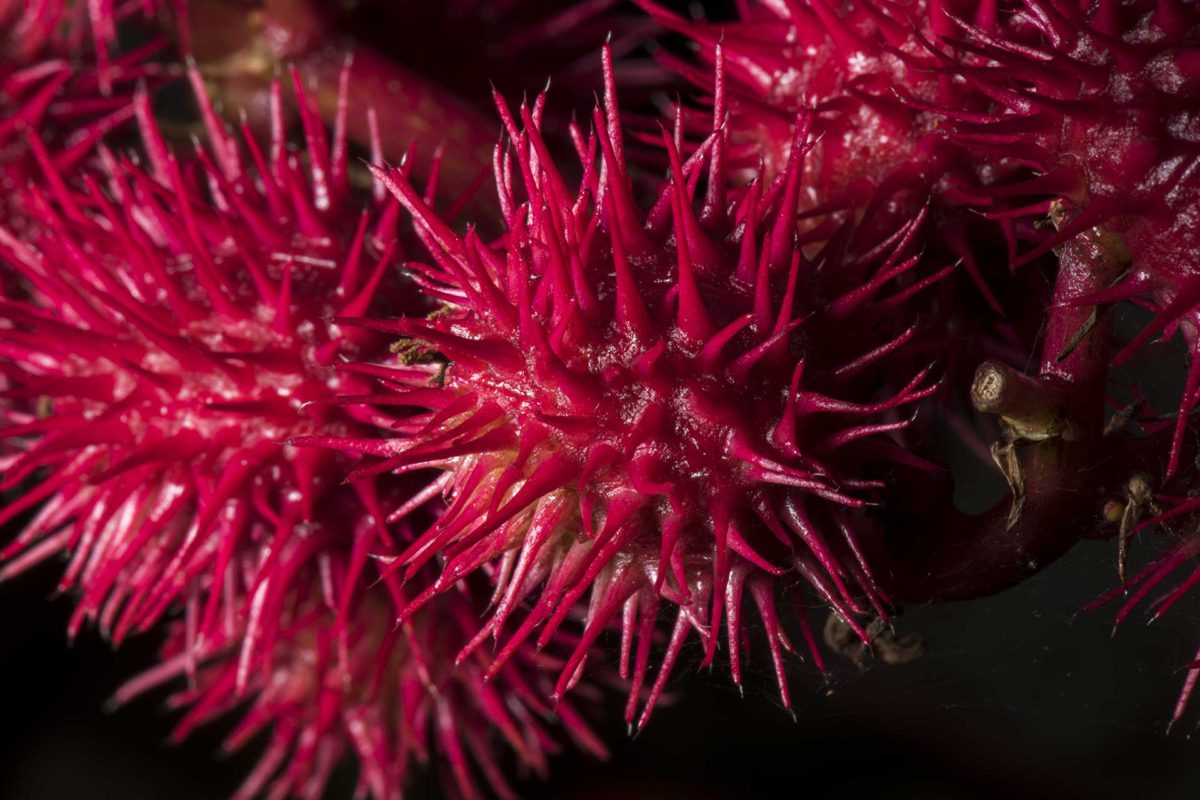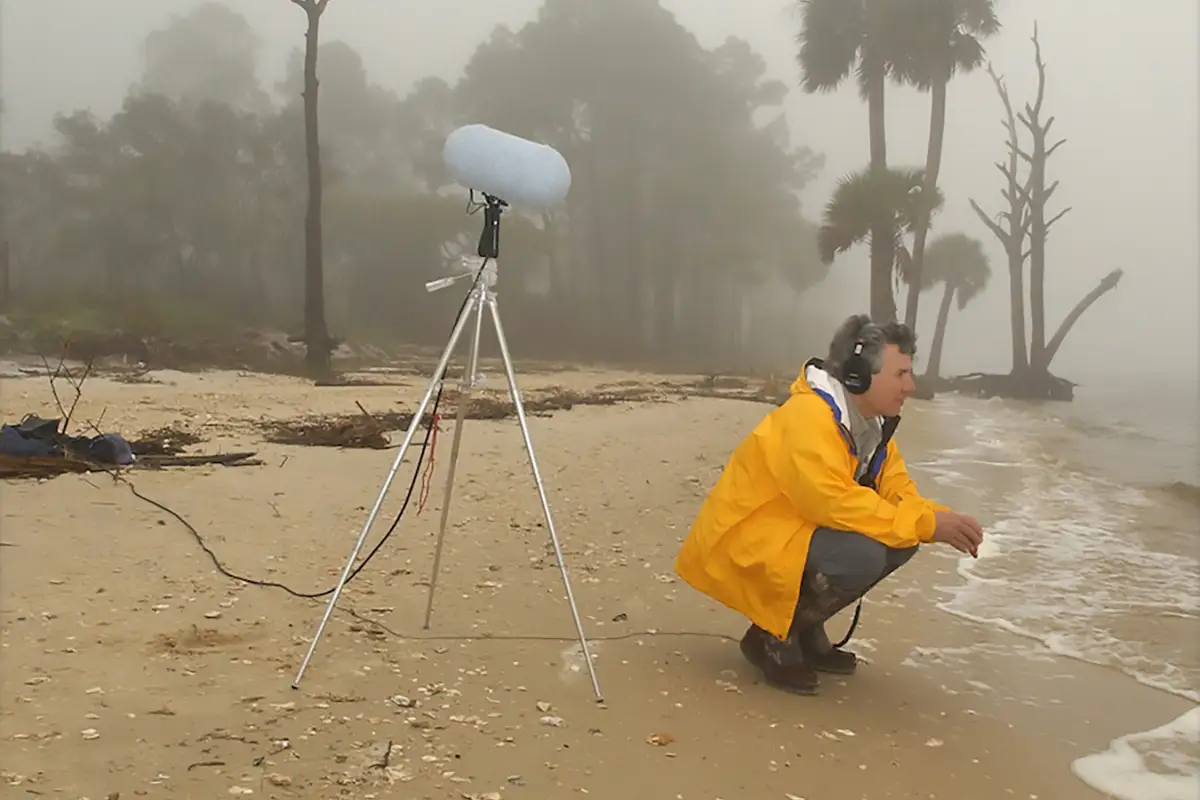Olivia Dowie, CEO and co-founder of Riley Studio, on how she incorporated the technical fiber in her collections
Lampoon reporting: Bio-based textiles
The field of bio-based textiles – meaning they must contain at least twenty percent renewable carbon content – includes natural materials such as cotton, wool and silk, and another sector that it’s expanding towards the research and production of biosynthetic fibers and fibers. The main difference between bio-based and conventional synthetics lies in the raw materials used. Conventional synthetics, such as polyester, nylon and acrylic, derive from fossil fuels – petroleum, natural gas and coal – while biosynthetic fibers can be made from fully biobased as well as partially biobased resources. The few ones commercially available today come from starches, sugars, and lipids extracted from corn, sugar cane, sugar beets, and plant oils while various technologies are under development to produce biosynthetic fibers from biomass and waste from agriculture, forestry, and even food. There are also early examples of biosynthetic derived from novel feedstocks, such as algae, fungi, enzymes, and bacteria that are not yet on the market. Since biosynthetic are an emerging discovery, the metrics of Life Cycle Assessment (LCA) portfolio on sustainability impacts are currently inconsistent in terms of: depth of work studied, framework of LCA boundaries and methodology, use of open sourced data, and breadth of data to represent variations in global regions and supply bases. The lack of standardized LCA benchmarking for virgin synthetics makes it challenging to compare and draw conclusions on sustainability matters. As stated by an assessment carried out by the European Commission, biobased products and biofuels represent approximately fifty-seven billion euros in annual revenue and involve 300 000 jobs, and will represent a twenty-two percent share of all chemical sales by 2022. National policies strategies have been already signed in forty-five countries to help the bioeconomy development as the research field is expected to expand the application of this type of polyamides, which are likely to become an opportunity for the textile industry over the coming years.
EVO – yarn from biomass of Ricinus Communis
Fulgar, a textile company founded in Northern Italy at the end of the Seventies, that produces man-made fibers and has gathered worldwide recognition by launching EVO, its first bio-based polyamide. Fulgar’s environmental policy is based on three main principles: low energy consumption, a focus on recycling and the adoption of a tracing system, all with the aim of providing maximum protection of both materials and end consumer. The company has set its internal system for the optimal use of water resources and energy from renewable sources, preferring natural light when possible. EVO is a yarn made from castor oil that comes from biomass of castor bean, a natural pest control agent and a renewable resource whose manufacturing doesn’t require high amounts of water nor subtracts arable land for food uses. Castor oil is characterized by the eighty-five percent of ricinoleic acid – an aliphatic acid that is not found in the oil of other plants –, sebacic acid and undecenoic. When castor oil undergoes the manufacturing process, it is purified to produce ricinoleic acid, a key intermediate, which is synthesized through a process of pyrolysis. The polymerization of these components, followed by extrusion, produces the final 10,10 polyamide in pellets, suitable for injection molding, industrial filaments and other typical applications of thermoplastic polymers. The 10,10 nomenclature represents the organic and renewable source of the raw material used, that is different from polyamides 6,6 whose source is entirely petroleum-based. When the polymer reaches the following step, it is molted using the extrusion technique and spun into a continuous yarn. On this matter, EVO can be classified as a viscose rayon: even if it’s made from the extraction of a natural and renewable raw material, it turns into a plastic yarn after it undergoes the polymerization process. It’s more sustainable than 6,6 polyamides, because no hydrocarbons are involved in its development, but it can’t be considered biodegradable as it takes around seventy years to proper biodegrade in soil, same as other plastic-derived yarns. EVO has finer mechanical properties if compared to any other polyester fiber: it is -25% lighter – whilst retaining the same covering properties –, has a superior modulus of elasticity (1900Mpa), a built-in bacteriostatic capacity, and intrinsic thermal insulation properties. When dyed, EVO uses lower water temperatures and can restrain non-metallic dyes. Its carbon emissions is 10.80 kilograms of carbon dioxide equivalent per kilogram compared to 12.84 of a standard 6,6 polyamide. All these features have been certified by DIN CERTCO and by the OEKO-TEX STD 100 CLASS 1 system that vouch for the integrity of the fiber.
Riley Studio’s use of EVO fiber
Across the loungewear and the sportswear industries, a range of different brands have decided to adopt biobased materials for the making of their outputs. Riley Studio is one of the brands to first incorporate EVO for the designing of their collections. Founded in 2018, Riley Studio’s mission is to change consumer’s mindset and educate people on how they consume, focusing on slow production and pieces that are made to last. We spoke to Olivia Dowie, CEO and co-founder, about the company’s ethos and principles: «When we were loungewear focused, we started by using fishing nets, recycled cotton and plastic bottles, and other discarded materials that were once used, in order to make them circular again. Our aim now is to build a sustainable wardrobe for everyone that last as long as possible». According to Dowie, Fulgar’s and Riley Studio’s principles are compatible. EVO is expensive and it was chosen to create multiple function outwear pieces. «By creating with this high performance fiber» – continued Dowie – «we are causing -25% CO2 emissions and using -35% water».
Building slow fashion business: a long-term plan
The decisions that led Dowie into founding and administering Riley Studio were made to be part for a minority of brands outside the system. «We are aware that we are producing and that we are putting something out in the world. We decided to offer a lifetime guarantee for our clothes. If your cardigan gets a hole in it or a stitch that comes out, rather than throwing it away we will repair it for free and send it back to you. Also, when people are finished with their T-shirts or sweatshirt, they can give them back to us and we will repurpose them into the system because the fibers that we use are circular. We are offsetting our carbon, we are planting trees for every order and that’s making a positive impact. We can trace how much water we saved using recycled cotton versus virgin cotton, and we can trace how many plastic bottles have been taken from the landfill». Riley Studio’s commitment is also expanded on keeping an European supply chain, putting traceability on each product to let people know where and how their clothes are made and how much energy has been used. «From our side the yarn gets spun by Almatex, an Italian company who gives us the fiber, and then it is worked in London. We personally go there to see the process. An usual cotton T-shirt uses 2 200 liters of water, ours uses 600 liters, so we are able to save that amount of water by tracking that information through our partners. We are currently working on the process of tracking how many miles our product has done; our buttons come from France and the binding is from London. We are trying to look at roughly how far this product has travelled and how much can we offset that product by looking at its carbon footprint».
Fulgar
Fulgar is an Italian company specialized in the making of synthetic fibers that manufactures and distributes polyamide 6,6 and covered elastomers for the technical and textile sectors. Fulgar’s approach aims to combine traditional Italian artisan ability and innovative technology to create yarns used in many sectors including: technical clothing, hosiery, circular knitting, lingerie, beachwear and sports apparel.




















